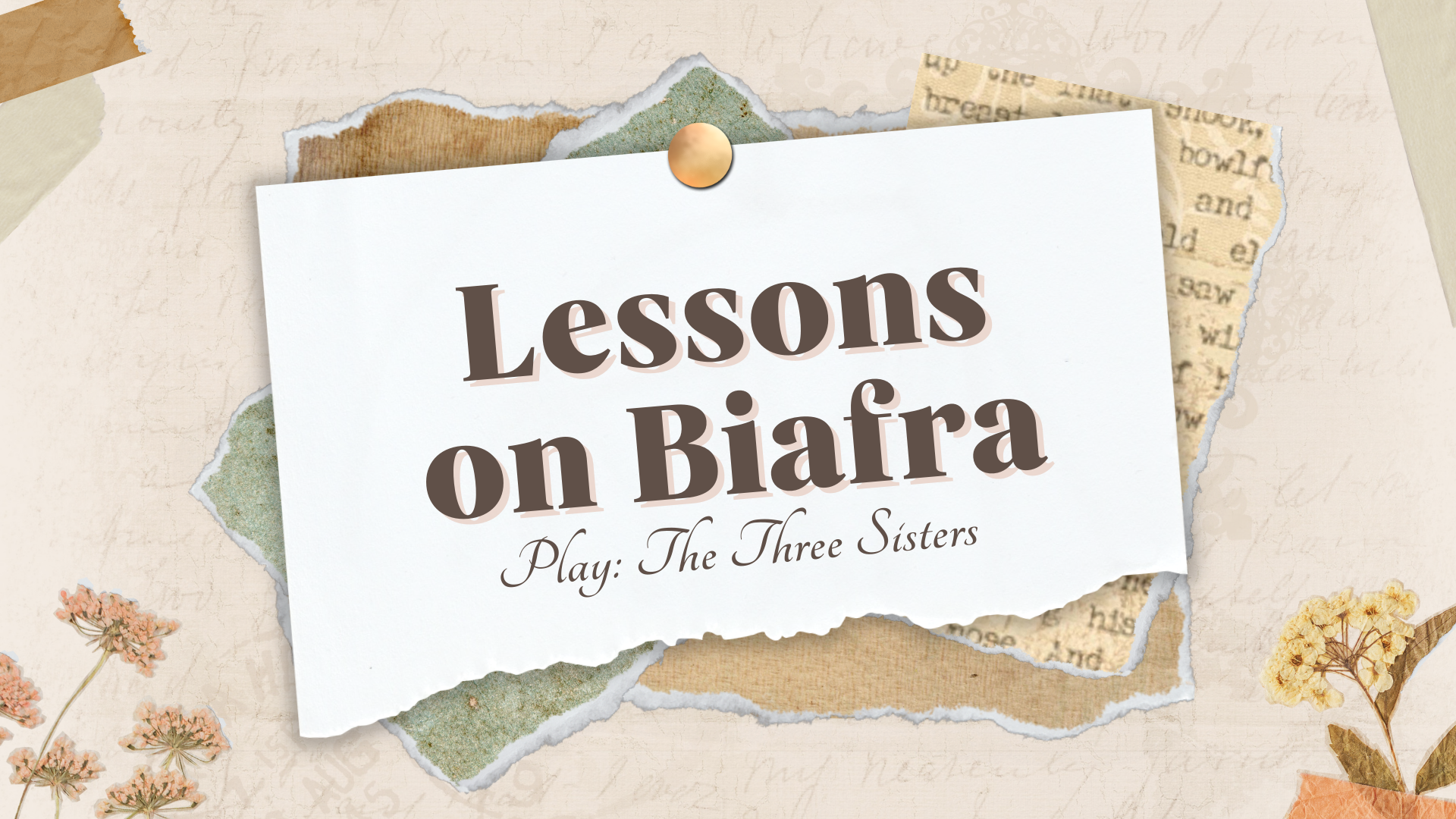On the evening of Thursday 18th April, I got the chance to attend a play reading on 'The Three Sisters' by Inua Ellams, which was being performed at the Goethe Institut in the Nairobi CBD by 'PlayReadingKe'. The play is an account of the experience of three sisters during the Biafran War, fought between Nigeria and the secessionist state, Biafra, from the years 1967 to 1970.

The eldest of the three sisters is known as Lolo, and is a hard-working and intelligent teacher. Thanks to her extensive reading, particularly of Kwame Nkrumah's seminal book Neocolonialism, she is well aware, from the onset, that Biafra's secession plans are just a dream, bound to fail. The middle sister is known as Nne Chukwu, and is married off at an early age, and spends the rest of the play complaining about her husband's incessant talks about the war. The youngest sister is known as Udo, and throughout the play, complains that her life has had no purpose, and watches as her happiness is continually shattered.
The play begins during the planning of the Biafran secession, and through it all, we can see the optimism of the military soldiers, of a free country, where the Igbo can finally rule themselves, away from the corrupt Nigerians.
One of the main lessons I learnt from this was how the colonialists drew boundaries in our continent, without any regard for the people here, and forced us to live as we are. Many a times, African multi-ethnic countries have had internal conflicts, simply because some white man seated in Berlin in the year 1884 drew an imaginary line and, from then henceforth, assumed it to be one territory, regardless of the number of ethnic groups within those lines.
Nigeria is a basket case, with 371 ethnic groups. However much I try to make sense of it, it sounds unbelievable. 371 different communities are one too many to coalesce into a country. And the reason why this is a non-zero possibility is exactly why the Biafran War started.
The Hausa-Fulani community had a higher population than the Igbo community, and so, in all the subsequent presidential elections since independence, the Hausa-Fulani candidate would massively outnumber the Igbo candidate, however much the latter had campaigned. All this was thanks to the population of voters.
The Igbo, seeing futility in this exercise, wanted secession from Nigeria, as they did not see fairness in it. They realized that, at this rate, none of their own would ever be a president. And true to word, the Igbo community has never produced a president to date.
The secessionist war was fought, as I mentioned, for three years, with massive international involvement. On one side, the British supported Nigeria, simply because they had vested interests in the oil deposits there. The Soviet Union, Israel and Egypt were also on the Nigerian side, while on the other hand, China supported Biafra, simply because they didn't want to side with the Soviet Union, with whom they had just become rivals because of the Sino-Soviet spill. France also offered full support to Biafra, but if anyone, we all know that France wanted to bring Biafra under its wing of Francophone Africa. Vested interests again, innit?
In the end, the Biafran state lost and the secession plans failed, with everything finally returning to Nigeria as was before.
Currently, Nigeria doesn't seem to have progressed as much, and while they gained independence some 64 years ago, the question is: Can their failure be blamed on the white man (neo-colonialism) or is it a result of the mismanagement of the country?
Special Mentions
📌 An Honest Explanation of the Nigerian Civil War | The Biafran Story
📌 The Entire History of Nigeria from Creation to Civil War | All Parts (1-4)
Join the Lughayangu Community!

